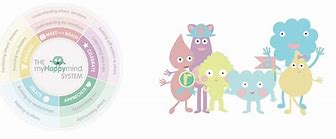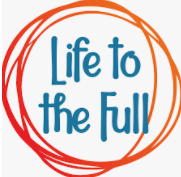RSHE and PSHE
We are proud to be a myHappymind school!

myHappymind is a whole school programme that teaches our children to understand how their brain works to control their thoughts and feelings. It focusses on understanding neurodevelopment and neuroplasticity in a child friendly way. It is an NHS-backed curriculum in primary schools, secondary schools, and nurseries and is focused on building resilience, self-esteem, and happiness in children.
It is an award-winning programme that has received national recognition
for its exceptional work in schools, nurseries, families, and organisations
across the UK. The programme is backed by NHS and uses wellbeing strategies firmly rooted in science, research, and the fields of neuroscience and positive psychology.
One of our favourite tools to make us feel happier and settled is happy breathing. Children are taught that when we feel scared or anxious the amygdala part of our brain takes over and stimulates our fight, flight or freeze reaction. The only way to turn this off is to bring as much oxygen as you can to your brain, so we breathe in and out slowly; this is happy breathing. Ask your child about happy breathing - they will be happy to show you!
The children work through 5 modules:
| Module | Children Learn |
| 1. Meet Your Brain |
|
| 2. Celebrate |
|
| 3. Appreciate |
|
| 4. Relate |
|
| 5. Engage |
|


As a Catholic school, we have decided to adopt ‘Life to the Full’ by ‘Ten Ten’ to deliver RSE in our school. Ten Ten is an award-winning Catholic educational organisation that is well-respected and very experienced in this field of work, this scheme has been approved by our diocese. All the sessions are age-appropriate and meet the needs of all pupils in the class.
The Life to the Full programme is based on ‘A Model Catholic RSE Curriculum’ by the Catholic Education Service which was highlighted as a work of good practice by the Department of Education. Therefore, we have confidence that the programme will be fit for purpose in supporting the growth and development of the children of St. Joseph's RC Academy.
The programme adopts a spiral approach so that as children go through the programme year-after-year, their learning will develop and grow, with each stage building on the last.
1. Module One: Created and Loved by God
1.1 Module One: Created and Loved by God explores the individual. Rooted in the teaching that we are made in the image and likeness of God, it helps children to develop an understanding of the importance of valuing themselves as the basis for personal relationships.
1.2 In these sessions, we explore:
Key Stage One (Years 1 & 2) – that we are uniquely made by a loving God, that we have differences and similarities (including physical differences between boys and girls), key information about staying physically healthy, understanding feelings and emotions, including strong feelings such as anger, and the cycle of life from birth to old age.
Lower Key Stage Two (Years 3 & 4) – understanding differences, respecting our bodies, puberty and changing bodies (recommended for Year 4+), strategies to support emotional wellbeing including practising thankfulness, and the development of pupils understanding of life before birth.
Upper Key Stage Two (Years 4 & 5)– appreciation of physical and emotional differences, a more complex understanding of physical changes in girl and boys bodies, body image, strong emotional feelings, the impact of the internet and social media on emotional well-being, a more nuanced and scientific understanding of life in the womb and how babies are made, and menstruation.
2. Module Two: Created to Love Others
2.1 Module Two: Created to Love Others explores the individual’s relationship with others. Building on the understanding that we have been created out of love and for love, this unit explores how we take this calling into our family, friendships and relationships, and teaches strategies for developing healthy relationships and keeping safe.
2.2 This religious understanding is then applied to real-world situations relevant to the age and stage of the children:
Key Stage One – In the Unit ‘Personal Relationships’, children are taught to identify the Special People in their lives who they love and can trust, how to cope with various social situations and dilemmas, and the importance of saying sorry and forgiveness within relationships. In the Unit ‘Keeping Safe’, we explore the risks of being online by incorporating the ‘Smartie the Penguin’ resources from Childnet, the difference between good and bad secrets, and teaching on physical boundaries (incorporating the PANTS resource the NSPCC).
Lower Key Stage Two – The sessions here help children to develop a more complex appreciation of different family structures and there are activities and strategies to help them develop healthy relationships with family and friends; here, they are also taught simplified Cognitive Behavioural Therapy (CBT) techniques for managing thoughts, feelings and actions.
Upper Key Stage Two – The sessions in the ‘Personal Relationships’ module aim to equip children with strategies for more complex experiences of relationships and conflict; this includes sessions that help children to identify and understand how to respond to spoken and unspoken pressure, the concept of consent and some practical demonstrations of this, and further teaching on how our thoughts and feelings have an impact on how we act.
3. Module Three: Created to Live in Community
3.1 Module Three: Created to Live in Community explores the individual’s relationship with the wider world. Here we explore how human beings are relational by nature and are called to love others in the wider community through service, through dialogue and through working for the Common Good.
3.2 In the first Unit, Religious Understanding, the story sessions help children to develop a concept of the Trinity.
3.3 In subsequent sessions, we apply this religious understanding to real-world situations, such as the community we live in, and through exploring the work of charities which work for the Common Good.
The scheme is fully compliant with DfE’s guidance on PSHE and with the statutory requirements of RSE. It is recommended by Salford Dioceses for use in schools. We aim to introduce the programme at St John’s in the Spring Term.
There is an online parents and carers platform which gives a useful overview of the scheme. To access the online platform please visit:
www.tentenresources.co.uk/parent-portal
Please contact the office for login details.

Themes and topics covered by the end of the primary phase.
Relationships education
-
Families and people who care for me
-
Caring relationships
-
Respectful relationships
-
Online relationships
-
Being safe
Physical health and mental well-being
-
Mental wellbeing
-
Internet safety and harms
-
Physical health and fitness
-
Healthy eating
-
Drugs alcohol and tobacco
-
Health and prevention
-
Basic first aid
-
Changing adolescent body
All teaching RSE will take in a safe learning environment and be underpinned by our school ethos and values. A variety of opportunities will be provided for pupils to ask questions to further their understanding and to find out more about what affects them personally.
Please see the documents below for further information.
